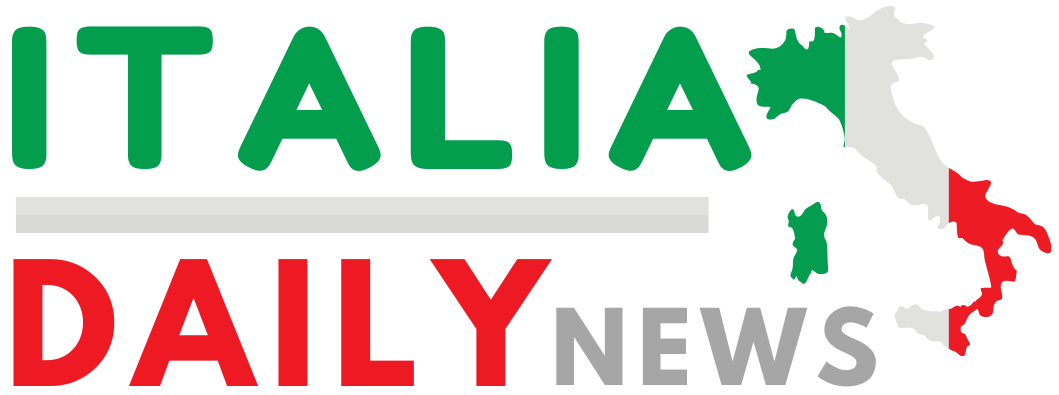Death by dung: How Brussels failed to save Europe’s waters from a farm waste deluge
Nitrate pollution is destroying Europe's aquatic ecosystems. Three decades after the EU started regulating it, there has been almost no improvement.
This article is part of the Europe’s looming water crisis special report.
The herring-rich Baltic Sea has fed Sweden’s appetite for surströmming since the Middle Ages. The putrid-smelling fermented dish can only properly be made using herring caught in the brackish waters of the world’s youngest sea, as they are smaller than their Atlantic cousins.
But now much of the Baltic Sea is quite literally dying — and herring numbers are plummeting.
Cod were first to be hit. After a mysterious surge in population in the late 1970s, numbers plunged in the 1980s and are now so low Baltic cod fishing is virtually banned under EU law.
Then came the herring decimation. Numbers are now 80 percent below 1970s levels — prompting panic from Sweden’s local fishers in a country where herring is an economic and culinary staple. But the fish’s importance extends beyond human use.
“Herring is the engine of the whole Baltic Sea ecosystem, because it’s such an important food for birds, for seals, and it’s a predator of smaller fish,” said Johanna Fox, Stockholm-based director of the WWF Baltic Programme.
“Losing cod was bad. Losing herring is catastrophic.”
What’s behind this wipeout? The obvious answer — overfishing — is a key part of the story. Rising sea temperatures have also been blamed.
But there’s another culprit: poo.
Livestock manure from farms in countries bordering the Baltic, along with urine and chemical fertilizer, seeps through the soil and into groundwater, runs into rivers, and is eventually washed out into the sea.
A portion of the Baltic Sea 1.5 times the size of Denmark is now considered the largest “dead zone” in the world — the victim of “eutrophication,” where the nitrates and phosphates in fertilizer over-nourish the water, prompting a surge in growth of some species, such as algae. These overtake and kill other species, block out the sun, and starve the water of oxygen. Eventually there’s no oxygen left and everything dies. (This effect may have contributed to the temporary surge of cod numbers in the late 1970s.)
On top of the ecological destruction, the lack of oxygen means the dead organic matter turns from carbon into methane, a potent greenhouse gas that is released into the atmosphere. Recent studies suggest the Baltic Sea may become a net contributor to climate change.
The overwhelming cause of this destruction is agriculture. And efforts to address the problem are failing badly.
A diabolical problem
The Baltic Sea dead zone is the most dramatic example of a Europe-wide problem. Pig farms in Spain pollute groundwater. Fertilizer sprayed on crops and orchards pollutes Italian rivers. Manure from Dutch and Belgian dairy farms soaks into the soil, damaging biodiversity and creating toxic algal blooms on the coast.
A third of Europe’s freshwater supply has unacceptably high levels of nitrate pollution, according to the European Environment Agency (EEA) — and the situation is not improving despite three decades of regulation.
The answer, say environmental advocates, is to farm less intensively.
But the politics of achieving that have proved diabolically difficult, and the will to act is fading. The EU farm lobby, always strong, has increased its influence in Brussels in the last 18 months, staging protests across the continent against EU green rules and gaining ever more support among the bloc’s most powerful political group, the conservative European People’s Party.
With war on Europe’s doorstep and rising geopolitical and trade tensions, the argument that food security must come before environmental protection has steadily gained influence since the days of the Green Deal in the early 2020s. The cries of environmentalists, insisting this is a shortsighted trade-off, sound increasingly faint in Brussels.
In recent discussions about the European Commission’s upcoming Water Resilience Strategy, multiple members of European Parliament told POLITICO that center- and far-right lawmakers had blocked efforts to write ambitious environmental protections into a parliamentary water proposal. That included scrubbing out all mentions of the European Green Deal and blocking a call from the Greens to strengthen enforcement of nitrate regulations.
Instead, many worry nitrate regulations will be weakened through another simplification bill. The European Commission told POLITICO it is considering such a policy, though they did not say this would weaken the rules.
A brief history lesson
Nitrate pollution began to take off in the mid-20th century after German chemist Fritz Haber discovered a method to extract nitrogen directly from the atmosphere to manufacture chemical nitrogen fertilizer. That made production of cheap fertilizer far easier, revolutionizing food production. Today Haber’s method is key to ensuring the world has enough food to support soaring human populations.
But it also released dangerous quantities of nitrates into the land and water. Just as digging up and burning fossil hydrocarbons in the form of coal, oil and gas has introduced extra carbon dioxide into the atmosphere, destabilizing the climate; so extracting inert nitrogen from the air and injecting it into the land and water has destabilized ecosystems.
Add to that the nitrate-rich manure from increasingly intensive industrial livestock farming, and in many regions you have far more nutrients than nature can handle.
“It is bringing whole ecosystems out of balance,” said Ingo Fetzer, a researcher on planetary boundaries at the Stockholm Resilience Center at Stockholm University.
“Eutrophication creates massive oxygen depletion. All aquatic ecosystems depend on oxygen in the water. Eutrophication means you have fishes dying, small animals dying, but also land ecosystems that depend on fishes, like sea eagles. Also human communities depend on that.”
The Nitrates Directive
The causes of eutrophication have long been known. Back when understanding of climate change was in its infancy, EU policymakers designed a law to deal with nitrate pollution: the 1991 Nitrates Directive.
The law aimed to restrict the amount of manure and chemical fertilizer spread on areas considered high-risk. To this day, the Nitrates Directive is the EU’s main tool to control nitrate pollution.
The trouble is, it’s not working. According to the EEA’s State of the Water report last year, nitrate levels in groundwater have remained the same since the beginning of the century. For surface water, there was a small improvement at first, but over the last 15 or so years progress has stalled.
Ask experts why it’s not working, and you get a range of answers. Some blame exemptions granted to countries. Others blame rule-breaking by farmers and poor enforcement by member countries. Others say the rules simply aren’t strong enough.
Caroline Whalley, manager of water industries and pollution at the EEA, says pollution from agriculture is by its nature difficult to monitor and control.
“When you’ve got a pipe coming out of a factory and you’ve got a pollutant that comes from that factory, you can say, ‘Do something about it.’” she said. “But things like nitrates and pesticide are spread on the land. Some farmers may be doing a great job. Some areas may not be very susceptible to pollution … and in other areas … it’s very difficult to say, ‘It was you!’ because with nitrate everyone is using it. It’s very difficult to identify an owner.”
Sara Johansson, a water expert at NGO the European Environmental Bureau, says poor implementation is a key problem, as is the EU’s willingness to grant exemptions — or “derogations” in Brussels jargon — to certain countries that request them, such as Denmark, the Netherlands and Ireland.
Denmark, she says, has said it will no longer seek derogations. But Ireland and the Netherlands “are fiercely holding onto their derogations and renewing them. But they are also trying to find a way to get round the rules so they can continue keeping unsustainably high livestock numbers.” The Netherlands, a nitrate-pollution hotspot, last month announced it would push back its nitrogen targets by five years, in defiance of EU law.
Don’t blame derogations
Still, the era of derogations may be coming to an end.
Every four years, countries that want a derogation must make their case to the European Commission’s Nitrate Committee. Since the beginning of the Nitrates Directive, Ireland has has always got what it wanted — permission to spread 250 kilograms of nitrates per hectare, rather than the standard 170 kilograms.
But in the last cycle the Commission put its foot down — sort of — and dropped the limit to 220 kilograms per hectare. That was during the Green Deal mandate, at the height of the Brussels’ pro-environment push.
Ireland’s next derogation hearing is coming in the next few months, and Edward Burgess, an agricultural catchments specialist with the Irish government’s agriculture agency Teagasc, is not sure which way it will go. On the one hand, momentum in recent years has been to be less generous with derogations. On the other, the mood in Brussels since the swearing-in of the new Commission last December has been to put farmers’ needs ahead of the environment.
But Burgess argues refusing derogations will have flow-on effects that could actually make matters worse.
“The 250kg limit wasn’t plucked out of the air to allow people to farm at a level that would damage water,” he said. “It was based on research that found people farming at this level could do so without having a negative effect on water quality, as long as they did it properly.” Farmers with derogations are much more closely monitored by the authorities, and as a result their farming practices improve, he argues. Take the derogation away, and such engagement may drop.
“It’s certainly not as simple as saying if we get rid of the derogation, everything will be hunky dory. My expectation is if we get rid of the derogation, there will be very little change, and if there is change, it will be worse.”
The problem, he says, is that nitrate pollution is not simply a matter of quantity. It depends on the soil quality, the geography, the geology, and so on. A truly effective regulation would take all these matters into account. But the resources required to invest, train and regulate more location-specific practices would be huge.
Farmers vs environment
Whatever the reasons, the brute fact remains that nitrate pollution in Europe’s waters is not improving, and Brussels has displayed little willingness to address this fact.
A draft of the European Commission’s upcoming Water Resilience Strategy, obtained by POLITICO, doesn’t give a single mention to nitrate pollution in the 34-page document. Nutrient pollution in general gets three mentions.
Separately, the Commission’s environment department has been getting feedback from industry on the effectiveness of the Nitrates Directive, and expects to publish a report by the end of the year. But it is noncommittal on whether it will reform the rules.
“Feedback from all stakeholders, including farmers, indicates that it [the Nitrates Act] remains very important and relevant for improving water quality by reducing nitrate pollution from agricultural sources,” an EU official told POLITICO in a written response, adding the review was also looking “at simplification and burden reduction potential.”
The word “simplification” has become a mantra for the current Commission, part of its drive to reduce red tape for business. But it’s a word that worries Michal Wiezik, a member of European Parliament with the centrist Renew Europe group who led the agriculture committee’s work on Parliament’s recent report on water resilience.
“They call it simplification, I call it deregulation,” he said.
A strong water resilience strategy, Wiezik says, is much-needed. “But I don’t think at the end of the day it will be strong enough. The majorities in this house [European Parliament] are willing to downgrade it to something that does not ask too much effort from the farmers,” he said. “That’s the basic problem whenever there is legislation relating to agriculture, there is always this sentiment to defend the farmers.”
Wiezik says Europe’s powerful farm lobby, represented by Copa Cogeca at the EU level, has a remarkable ability to influence policymakers, something that mystifies him.
POLITICO contacted Copa Cogeca multiple times by phone and email to request an interview for this story, but received no response.
As the politics in Brussels plays out, the vast dead zones in the Baltic Sea remain a striking example of the ecological destruction excessive fertilizer use can cause.
Looming over all this, says WWF Baltic’s Fox, is the Common Agricultural Policy (CAP) — the massive funding of food production that accounts for nearly a third of the EU budget. Currently, the CAP often works against environmental policy, Fox says — a point the European Court of Auditors agrees with.
“The CAP promotes large, more intensive farming,” Fox said, “and with large more intensive farming, you get more intensive use of fertilizers.” The Nitrates Directive is an inadequate check on the colossus that is the CAP — it’s the latter where real reform is needed, Fox says.
But fundamentally changing the CAP would involve a big fight with farmers — something recent events suggest the Commission has little appetite for.











